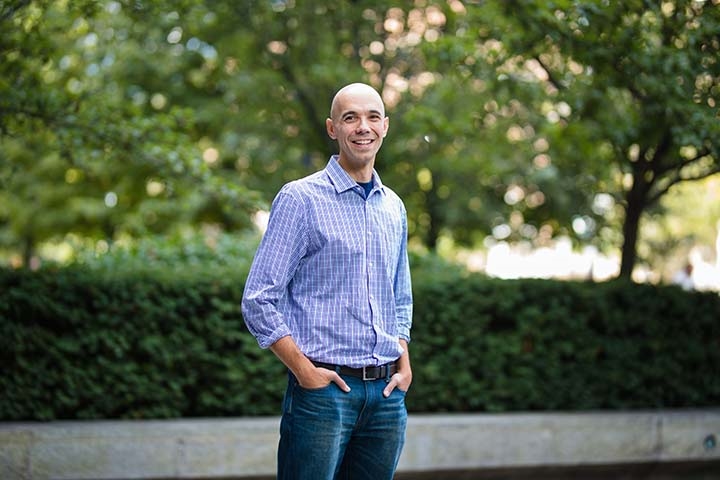The Arkansas Integrative Metabolic Research Center will host a Zoom seminar at 1 p.m. on Tuesday, April 12, featuring associate professor Rodrigo Fernandez-Gonzalez of the University of Toronto, who will discuss an outstanding question in biology of how cells coordinate their behaviors. Collective cell movement is essential for tissue development and repair and can also drive metastatic invasion. A common feature of cells that move collectively, both in development and disease, is the redistribution of proteins that mediate cell-cell adhesion (junctional proteins) and force generation (cytoskeletal proteins) to promote cell cohesiveness.
Fernandez-Gonzalez' research program is to determine the physical and molecular mechanisms that coordinate cell behaviors in living animals. He develops novel quantitative microscopy tools and biophysical methods to study (1) the collective cell movements that drive embryonic wound repair and (2) the coordinated cell behaviors that establish tissue architecture in early embryos by modeling coordinated cell behavior in Drosophila embryos, which allow live imaging as well as genetic, pharmacological and biophysical manipulations. His work has direct implications for the understanding of collective cell migration during embryonic development, tissue repair and ultimately, human pathology.
Fernandez-Gonzalez is an associate professor in the Institute of Biomedical Engineering at the University of Toronto, cross-appointed to the Department of Cell and Systems Biology and the Ted Rogers Centre for Heart Research, as well as the Developmental and Stem Cell Biology Program at The Hospital for Sick Children. He is the Canada Research Chair in Quantitative Cell Biology and Morphogenesis. He received a bachelor's degree in computer engineering from the Universidad Autonoma de Madrid (2000) and a Ph.D. in bioengineering from UC Berkeley and UC San Francisco (2006).
Fernandez-Gonzalez conducted postdoctoral work with Jennifer Zallen (Sloan-Kettering Institute) studying the role of mechanical forces during axis elongation in Drosophila embryos. He established his lab at the University of Toronto (2012). His current work investigates the mechanical and biochemical signals that cells use to coordinate their behaviors during embryonic development and tissue repair, using quantitative microscopy, computer modeling and genetic, biophysical and pharmacological manipulations in Drosophila embryos.
If you have any questions about this event, please contact Kimberley Fuller.
This event is supported by the NIGMS of the National Institutes of Health under Award Number P20GM139768. The content is solely the responsibility of the authors and does not necessarily represent the official views of the National Institutes of Health.
Topics
Contacts
Sarah Grace Brown, communications coordinator
Division of Research and Innovation
479-575-6874,
